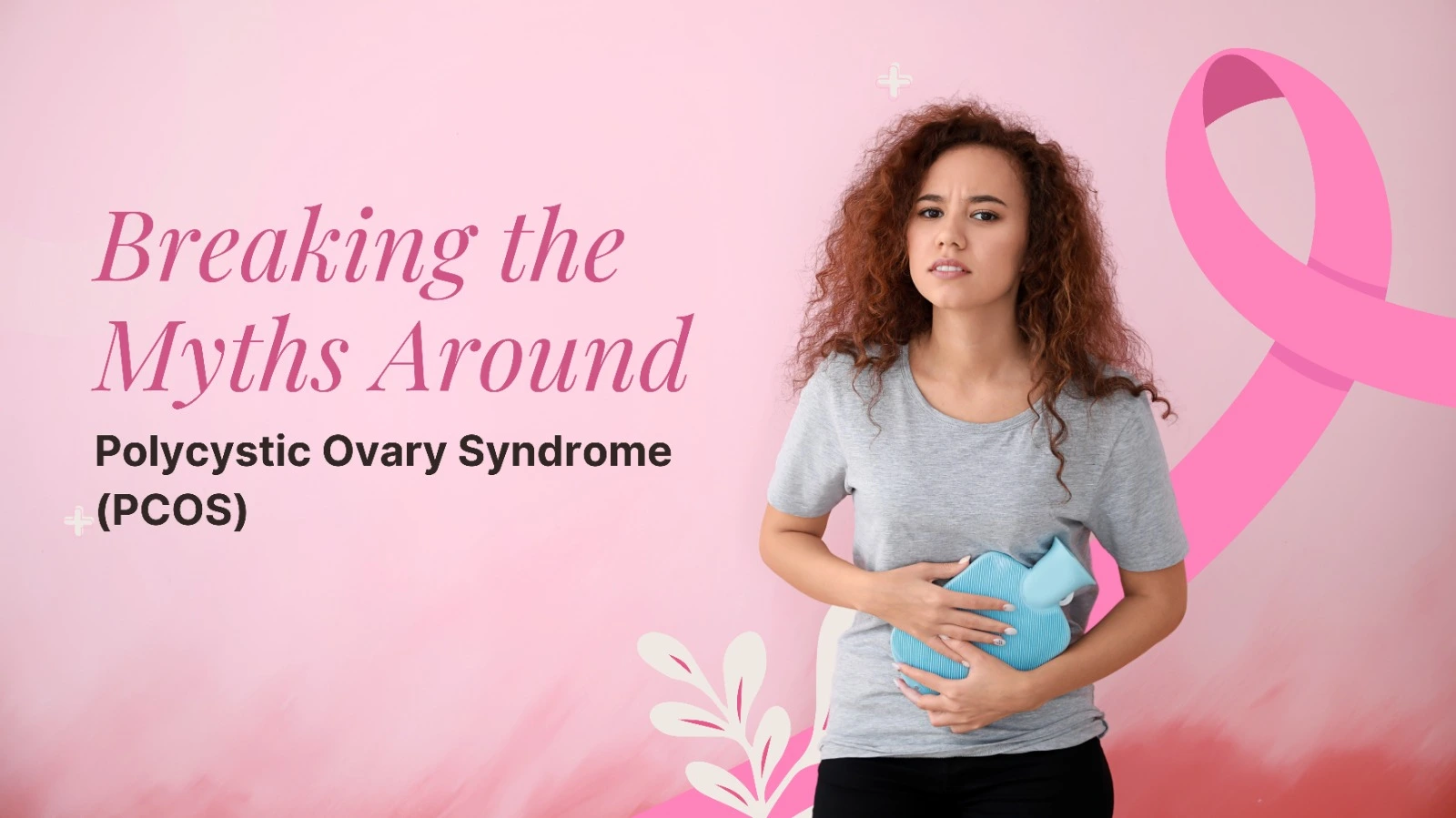
Breaking the Myths Around Polycystic Ovary Syndrome (PCOS)
Polycystic Ovary Syndrome (PCOS) is one of the most common endocrine disorders affecting women of reproductive age, yet it remains misunderstood. Myths and misinformation surrounding PCOS often prevent women from seeking proper diagnosis and treatment. This blog aims to dispel the myths and provide a clear understanding of PCOS.
What is PCOS?
PCOS is a hormonal disorder characterized by:
- Irregular menstrual cycles.
- Excess androgen (male hormone) levels.
- Polycystic ovaries (enlarged ovaries with numerous small cysts).
It affects approximately 1 in 10 women worldwide and can lead to complications such as infertility, metabolic syndrome, and type 2 diabetes if left untreated.
Common Myths and Facts About PCOS
Myth 1: PCOS Always Causes Infertility
Fact:
While PCOS can make it more challenging to conceive, many women with PCOS successfully become mothers with the right interventions. Ovulation induction medications, lifestyle changes, and advanced reproductive technologies like IVF can significantly improve fertility outcomes.
Myth 2: All Women with PCOS Have Ovarian Cysts
Fact:
Not all women with PCOS develop ovarian cysts. The name “polycystic” refers to the appearance of the ovaries, but the presence of cysts is not a definitive diagnostic criterion. Some women may have normal-looking ovaries but still exhibit other symptoms of PCOS.
Myth 3: PCOS Only Affects Overweight Women
Fact:
PCOS can affect women of all body types. While obesity is a common feature due to insulin resistance, lean women can also develop PCOS. Diagnosis and treatment focus on symptoms, not weight alone.
Myth 4: PCOS is Just a Menstrual Disorder
Fact:
PCOS is more than irregular periods. It impacts hormonal balance, metabolic health, and mental well-being. Symptoms like acne, excessive hair growth, weight gain, and mood swings are also common.
Myth 5: Birth Control Pills Cure PCOS
Fact:
Birth control pills help manage symptoms like irregular periods and excess androgens but do not cure PCOS. The condition requires a holistic approach, including lifestyle modifications, medications, and sometimes fertility treatments.
Symptoms of PCOS
- Irregular or absent periods.
- Weight gain, especially around the abdomen.
- Excessive facial or body hair (hirsutism).
- Hair thinning or scalp hair loss.
- Acne or oily skin.
- Darkened skin patches (acanthosis nigricans).
Causes of PCOS
While the exact cause of PCOS is unknown, contributing factors include:
- Insulin Resistance: Leads to elevated insulin levels, stimulating excess androgen production.
- Hormonal Imbalances: Elevated androgens interfere with ovulation.
- Genetic Predisposition: PCOS often runs in families.
Diagnosing PCOS
Diagnosis is based on the Rotterdam criteria, which require at least two of the following:
- Irregular or absent ovulation.
- Elevated androgen levels (clinically or biochemically).
- Polycystic ovaries on ultrasound.
Treatment Options for PCOS
There is no one-size-fits-all treatment for PCOS. A personalized plan is developed based on symptoms, age, and reproductive goals.
- Lifestyle Modifications
- Diet: A low-glycemic, balanced diet rich in whole foods can help manage insulin resistance.
- Exercise: Regular physical activity improves insulin sensitivity and aids weight management.
- Stress Management: Practices like yoga and mindfulness can reduce stress and improve hormonal balance.
- Medications
- Birth Control Pills: Regulate menstrual cycles and reduce androgen levels.
- Metformin: Improves insulin sensitivity and reduces blood sugar levels.
- Fertility Medications: Clomiphene citrate or letrozole can stimulate ovulation in women trying to conceive.
- Cosmetic Treatments
- Laser hair removal or electrolysis for excessive hair growth.
- Dermatological treatments for acne.
- Advanced Reproductive Techniques
- Assisted reproductive technologies like IVF for women facing infertility challenges.
Managing PCOS Naturally
Natural approaches can complement medical treatments and improve overall health:
- Adopt Anti-Inflammatory Foods: Include leafy greens, fatty fish, nuts, and berries in your diet.
- Herbal Supplements: Certain herbs like spearmint and inositol have shown promise in reducing androgen levels and improving ovulation.
- Adequate Sleep: Poor sleep disrupts hormonal balance. Aim for 7-9 hours of quality rest.
The Emotional Impact of PCOS
PCOS affects more than just physical health. Many women experience:
- Low self-esteem: Due to physical changes like weight gain and acne.
- Mood disorders: Increased risk of anxiety and depression.
- Social challenges: Difficulty discussing symptoms openly.
Seeking support from friends, family, or professional counselors can help alleviate emotional stress.
Breaking the myths around PCOS is essential to empower women with the knowledge they need to manage their condition effectively. PCOS is a lifelong journey, but with the right care, women can lead healthy, fulfilling lives.
If you or someone you know is struggling with PCOS, consult a healthcare professional to create a tailored management plan. Remember, early intervention is key!
